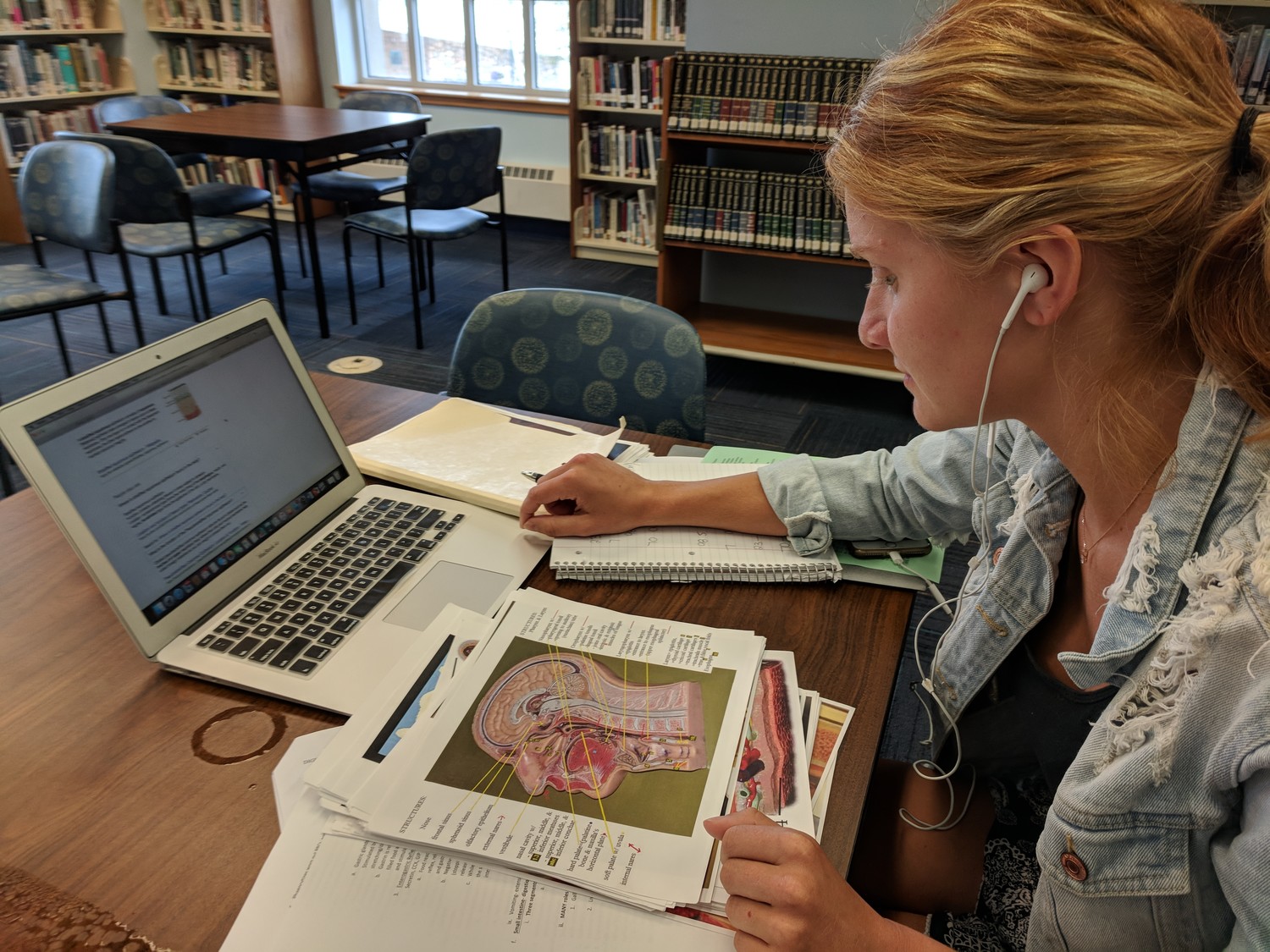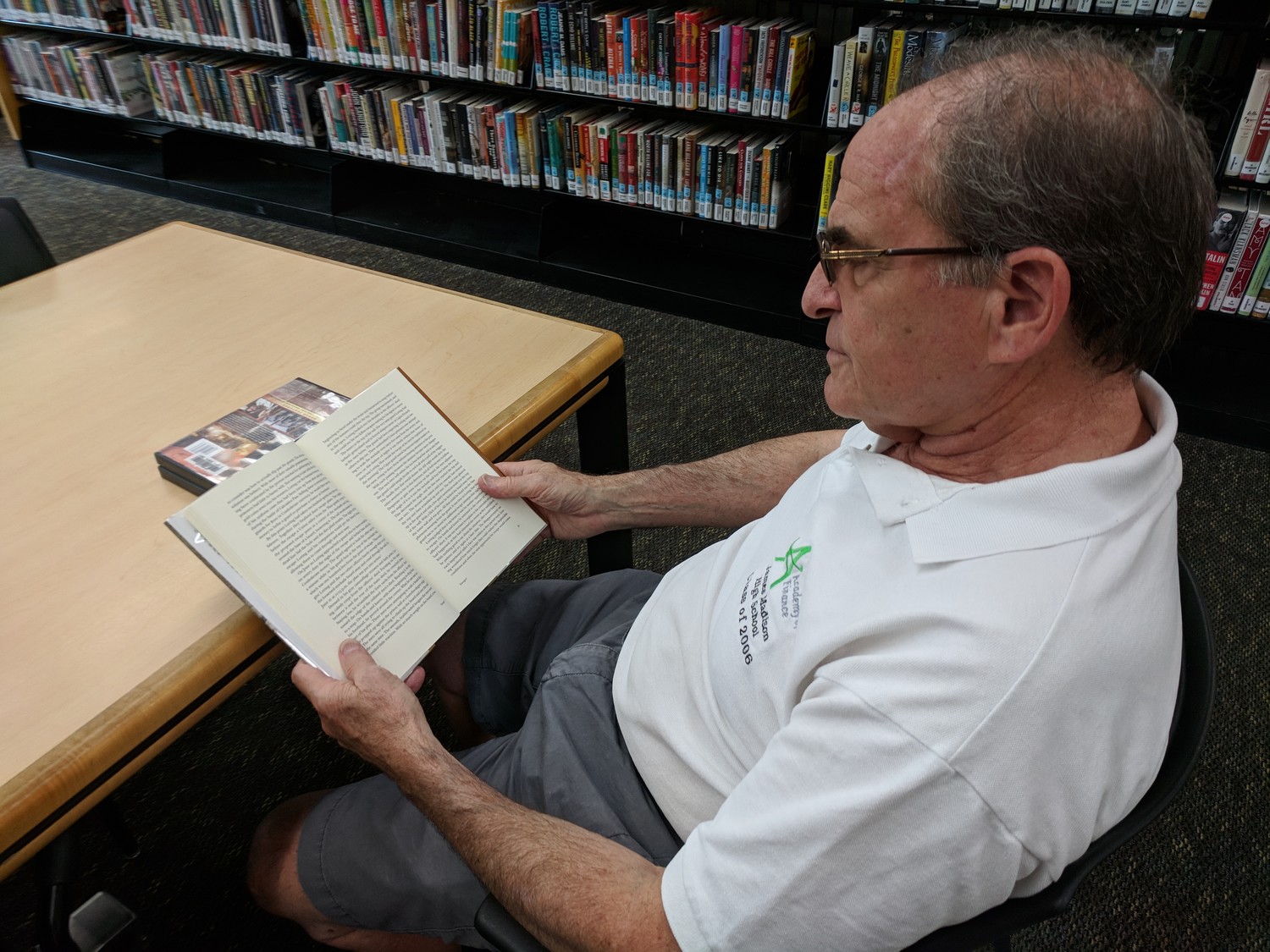‘We are more than just books': Island Park, Oceanside libraries respond to pulled Forbes op-ed
“The guy is a lunatic,” Island Park librarian Maureen Glueckert said, shaking her head, referring to LIU Post economist Panos Mourdoukoutas, who wrote an opinion piece for Forbes that suggested replacing public libraries with Amazon bookstores.
The talking point
Forbes published the op-ed on its website with the headline, “Amazon Should Replace Libraries to Save Taxpayers Money” on the morning of July 21. Mourdoukoutas, the chairman of LIU Post’s Economics Department, argued that local libraries are no longer viable, and that taxpayers could save money if the online superstore Amazon opened bookstores instead.
“They don’t have the same value they used to,” he wrote, referring to libraries, going on to say that Starbucks provides the community that libraries offer, along with free WiFi, while Net-flix and Amazon Prime provide the video rentals and Amazon the books. Mourdoukoutas continued that physical books are “collector’s items” thanks to technology, so “borrowing services” offered by libraries are no longer necessary.
“Some people have started using their loyalty card at Starbucks more than they used their library card,” he added.
The article immediately drew pushback, and Mourdoukoutas took to Twitter, saying, “Let me clarify something. Local libraries aren’t free. Homeowners must pay a local library tax. My bill is $495/year.”
Forbes pulled the story by the morning of July 23 and released a statement: “Forbes advocates spirited dialogue on a range of topics, including those that often take a contrarian view. Libraries play an important role in our society. This article was outside of this contributor’s specific area of expertise, and has since been removed.”
Island Park responds
“The argument, ‘I should not have to pay for the library if I don’t use it,’ is the same argument I sometimes hear that goes, ‘I should not have to pay for public schools if my child is not attending,’” said Jessica Koenig, director of the Island Park Public Library.
There is no shortage of programs at the library, she pointed out: movie screenings; classes for exercising, crafting and cooking; reading clubs; driver’s education; naloxone training; concerts; and telescope viewings. Koenig does not see how an Amazon bookstore could replicate what libraries do, for the cost they do it.
“We have students of all ages come here and study, too . . . for their MCATs, nursing exams, police tests,” she noted.
Resident Angela Graci, a senior at Hunter College who lives down the block from the library, said she could not imagine life without it. She said she has used the library since elementary school when she started reading. Graci has been a frequent visitor since starting her undergraduate studies. It is her “home away from home,” she noted.
“I, like, live here,” she laughed, before explaining that she loves how peaceful the atmosphere is at the library. Graci prefers to study for her physical therapy classes at the local library rather than the one at her university. A person can even borrow textbooks for classes, which are usually expensive, she noted.
Koenig acknowledged that people’s needs do change over time, but suggested that young people might become parents later on in their lives and suddenly find use for the library.
“We’re the foundation for education,” library Trustee Joe Pontecorvo said. “It starts here.” He said he does not see how children could learn to read at bookstores or how they would pay for all the books they might go through during their early reading years.
“Readers just want to borrow and a book, read it and bring it back,” said Koenigh, who also noted that many people do not want or have the space for a home library.
“While I understand why the professor does not wish to use the library himself and why he thinks it should be done away with . . . he does not speak for the many others who do wish to continue to use it,” she added.
Glueckert, libraria, also said she believes many people do not like the “perception” that they must make a purchase at a bookstore when they read, study or hang out. “We don’t require you to buy anything here,” she said.
Oceanside weighs in
“I wholeheartedly disagree” with the article, said Robert Steig, of Oceanside. Steig, who said he has come to the library for the past 19 years, said, “I’m here all the time . . . I’m reading a book about Lincoln.”
He pointed to the many programs that the library offers, saying, “You could never get that from Amazon.” Some of these programs include Healthy Ocean-side, the Next Chapter Book Club, clubs for board games and reading for adults and children, as well as classes in science, music, yoga, technology and more.
“We are more than just books,” librarian Michelle Samuel said. Bookstores, she explained, would not guide customers and help them with studying and reading as libraries do for patrons.
Samuel added, “When you come to the library, you are socializing with a wide range of people.” She called the space a “no judgment zone,” noting, “You can be yourself here, and find others like you.”
Christina Marra, the Oceanside Library director, pointed out that many low-income families or those that are unemployed might not buy books on Amazon. “I, myself, would go to a public library over a bookstore,” she said, adding that the library features free-to-use computers, access to printers and tutoring options — resources absent at a for-profit bookstore.
“Libraries play a significant role and offer vital services that cannot be replaced,” Marra said. “The library provides a safe, welcoming place for all ages.”










